- Home
- Helen Forrester
The Moneylenders of Shahpur
The Moneylenders of Shahpur Read online
HELEN FORRESTER
The Moneylenders of Shahpur
DEDICATION
To Dianne, with love.
CONTENTS
Cover
Title Page
Dedication
Prologue
Chapter One
Chapter Two
Chapter Three
Chapter Four
Chapter Five
Chapter Six
Chapter Seven
Chapter Eight
Chapter Nine
Chapter Ten
Chapter Eleven
Chapter Twelve
Chapter Thirteen
Chapter Fourteen
Chapter Fifteen
Chapter Sixteen
Chapter Seventeen
Chapter Eighteen
Chapter Nineteen
Chapter Twenty
Chapter Twenty-One
Chapter Twenty-Two
Chapter Twenty-Three
Chapter Twenty-Four
Chapter Twenty-Five
Chapter Twenty-Six
Chapter Twenty-Seven
Chapter Twenty-Eight
Chapter Twenty-Nine
Chapter Thirty
Chapter Thirty-One
Chapter Thirty-Two
Chapter Thirty-Three
Chapter Thirty-Four
Chapter Thirty-Five
Chapter Thirty-Six
Chapter Thirty-Seven
Chapter Thirty-Eight
Chapter Thirty-Nine
Chapter Forty
About the Author
Also by the Author
Copyright
About the Publisher
PROLOGUE
‘They’ll think I’m mad,’ muttered Dr John Bennett to himself, as he waited for the station porter to load his luggage into a tonga. ‘To come back to India, when so many Indians are trying to settle in the West. It won’t make sense to them, even though I was born and brought up here.’ He smiled wryly to himself. ‘Mad dogs and Englishmen …’
For over a year now, he had been thinking seriously of returning to India. He was bored by his job as lecturer in Asian Studies. He was tired of Liverpool, its cold, its dampness, its depression; he longed for sunshine. Suddenly, he could stand it no longer. He had his Air Force pension and some savings; he had no family. At the end of the 1949/50 university year, he packed up his books and joyfully took a boat out to India.
Now he stood unsteadily at the top of the imposing steps of Shahpur station, a thirty-four-year-old Englishman, whose war wounds in his legs ached abominably, and wondered if he would still be welcome; India had, after all, fought very hard to rid itself of the British, and it had had its freedom for only two years.
People pushed and shoved past, their luggage perilously poised on the heads of porters. Where once there would have been a number of white faces amongst them, now there was none. Amid the crowds of Hindus and Muslims, a fair sprinkling of Jains stood out, distinguished by their plain white clothes and their more sedate movements.
Looking across the railway lines, he could see the Chemical Works which his father had managed until his death. He observed from the neon sign that its name had been altered to the Star of Asia Chemical Company, and a large addition had been built. The smell of sulphur and other chemicals from it far outweighed the more traditional odours of horse manure and open drains.
He shifted his weight off his wounded legs and on to the two sticks with which he supported himself. God, how the heat made his wounds throb – but at least here he would not have to stand on them while he lectured, he consoled himself. He would try to find his old friend, Dr Ferozeshah, and get him to prescribe a pain reliever for him.
A dignified, elderly Jain came slowly up the steps, his quiet, saintly face lit by a smile, the palms of his hands held together in greeting.
‘John, I am pleased to see you. I’m sorry I’m late. Your letter arrived only an hour ago.’
He paused for breath, and then looked aghast at John’s sticks. ‘You’ve not been cured?’ he asked, a quaver in his voice.
John was sharply reminded that Jains regard physical disability as a punishment for misdemeanours in previous lives, and his heart sank a little.
‘No,’ he replied, as he watched his father’s old friend trying to overcome his repugnance. ‘But I can manage quite well with my sticks – and on a bicycle.’
The older man recovered some of his composure.
‘I am very relieved to hear that,’ he said, looking again uneasily at the offending legs, then averting his gaze to look round the station yard. ‘We must get a tonga.’
‘I have one,’ said John, as he slipped a coin into the eager palm of the hovering porter.
They moved slowly to the little carriage, which was weighed down with a trunk, a bedding roll and three suitcases.
‘Thank you for coming to meet me, Dr Mehta.’
‘I was most happy to come,’ replied Dr Mehta with conviction. ‘Since the death of your dear father and mother in that dreadful aeroplane accident, I have felt as a parent to you – and I hope you will regard me as such.’
John warmed to the kindly old man, and he felt sad that someone so gentle should have aged so much. The once upright figure was bent and thin, the face fine drawn. The voice which he remembered so well from many a lecture on English literature had lost its richness and was faded.
‘You are very good,’ he said.
He struggled into the carriage after Dr Mehta, using a firm grip on either side of the door at the back to swing his awkward legs up and over the difficult steps. He cursed under his breath as he hit his knee.
‘And how is little Anasuyabehn?’ he inquired, as Dr Mehta and he settled themselves on the side seats. ‘She was about to be married last time you mentioned her in your letters.’
Dr Mehta arranged his white dhoti neatly round his legs before he answered. His ascetic-looking face registered an uneasy frown. Finally, he said, ‘Her betrothed died, so she is not yet married – being motherless makes life a little more difficult for her than it should be – but I shall arrange another marriage for her soon. She must have time to recover.’ He did not mention a grave shortage of suitable young men in his caste or that he had left his child’s marriage rather late, because he found it hard to part with her.
John nodded politely.
‘She’s getting into touch with your father’s old servant, Ranjit. We felt sure you would like to have him to serve you. He went back to his village after your father died.’
John was delighted. ‘I’d like to have him very much,’ he said. Ranjit was a Hindu, and he remembered the happy hours he had spent nestled against the strong, kindly peasant, listening to his harsh country dialect as he told him tales of the great Arjun, and of Ram and his faithful Sita. He also remembered suddenly his gentle, easy-going Ayah who had taken him with her to pray in Jain temples; he could almost feel again his offering of flowers clutched in his hand.
The carriage jogged along the narrow streets. Women were standing in queues to draw water from street taps, to carry up to their families who lived over the open-fronted shops. From behind white saris or red veils they peeked shyly at the strange Englishman.
In the Moneylenders’ Quarter, the sweepers were busy brushing the pavements with small rush brooms. They worked their way phlegmatically in and out amongst the beggars, who sat on their heels with their backs against the high compound walls surrounding the moneylenders’ communal family homes.
The carriage swept through the ancient Red Gate and John caught a glimpse of the temple to which his ayah used to take him when he was a little boy. It had a double row of lepers lining its imposing steps from top
to bottom. Then, within a few minutes, they were engulfed by the overwhelming perfume of the Hindu flower bazaar.
The bazaar marked the end of the city. Dr Mehta raised his hand to point towards a group of fine, modern buildings, fronted by well-kept flower gardens.
‘Our new Government University,’ he announced with pride. ‘You can just see our original college – which you’ll remember – through the trees.’
Indeed, John assured him, he did remember – he had been happy when he had attended it. Many of his fellow scholars had been the sons of merchants and moneylenders from the Jain community, sent to the college to obtain a good command of English.
He had always been interested in Jains. They were so determined not to kill anything, not even an insect or one of the souls they believed inhabited the air or crowded into root vegetables and unripe fruit. Their desire not to commit violence meant that they could not use any implement, be it plough or typewriter; so they were usually moneylenders or merchants, though there were many monks and nuns amongst them and a fair number of scholars like Dr Mehta.
‘My bungalow is one of those facing the campus, along that lane over there,’ said Dr Mehta. He clutched the side of the carriage as it bumped suddenly off the gravel road and into the rutted lane he had just indicated. Then as it began to trundle more safely along, he asked, ‘I’m not sure, my dear John, what your plans are …?’
John’s voice was a little defensive, as he replied, ‘My History of India is selling so well in the States, and in Britain and India, that I thought I might follow it with a history of the Gujerat – approaching it, perhaps, through the story of the Marwari Gate temple here in Shahpur.’
Dr Mehta nodded, and directed the driver to his bungalow.
‘An old bachelor like me doesn’t need a great deal,’ John said. He did not know how to explain to Dr Mehta his desperate need to rest and be quiet. England had been as alien to him as to any other immigrant; his upbringing in India had not prepared him for the difference in its way of life. The struggle to earn a living when crippled had also been exhausting.
After the war, he had expected to marry the girl to whom he had become engaged before being taken prisoner, but she had looked with undisguised distaste at his torn legs and viewed with horror his tentative proposal that they should live in India. She had left him sitting in a wheelchair in a military hospital and, a month later, had married someone else. This unhappy experience had tended to make him brusque and defensive with women and he had never proposed to anyone else. He never considered that in spite of his damaged legs he was still a fine-looking man, with his brush of black hair lightly touched with grey, and blue eyes which normally twinkled cheerfully from under straight, bushy eyebrows; he had never really examined himself in a mirror for years.
As they descended from the carriage, Dr Mehta murmured gentle agreement with John’s plans. The driver began to unload the luggage and dump it into the sand.
The compound gate was opened by an excited boy servant. Behind him, fidgeting nervously, was Dr Mehta’s sister, who kept house for him, an old lady in white widow’s garb, her cunning face creased with anxiety about her English visitor, whom she remembered as a precocious, ever curious young man.
Anasuyabehn, small, plump and passive, stood half behind her aunt, peeking at John through thick fluttering eyelashes.
John whistled under his breath. It always defeated him how Jain women could look, at the same time, so prim and so seductive. No one looking at a Jain, he thought, could guess at the passions raging beneath their placid exteriors.
Smiling, both women advanced timidly, putting the palms of their hands together in salute.
As John bowed and said how pleased he was to see them again, he was thinking that if he were Dr Mehta, with a twenty-four-year-old daughter like Anasuyabehn, he would marry her off fast, before she got entangled with someone unscrupulous.
CHAPTER ONE
The office of the Vice-Chancellor of Shahpur University was extremely hot. It seemed as if the white walls of the Arts and Science Building had, that September morning, absorbed all the heat of the surrounding desert, and it had then become concentrated in the Vice-Chancellor’s usually pleasant room overlooking the carefully cultivated gardens in front of the building.
The Vice-Chancellor, Dr Yashvant Prasad, drummed his fingers irritably on his desk and tried to concentrate his attention on the papers before him, but the fan kept fluttering them and finally he closed the file and handed it to the Dean, Dr Mehta, who was standing by the desk.
The Dean’s gnarled brown hands shook a little as he took the file from his superior. Today was a fast day and he felt suddenly very weak and weary and thought wistfully of his retirement, still twelve months away.
He flicked over the pages of the file, which was neatly labelled Dr Tilak, Zoology, and said, ‘Dr Tilak should arrive this afternoon. I’m giving him two rooms in the students’ hostel for the present.’
‘That will do very well,’ agreed the Vice-Chancellor.
‘There’s a small room next to the Botany Museum which has water laid on, and I have arranged for him to have it as a laboratory.’ The Dean paled a little. He had long considered the requirements of Dr Tilak, the first staff member to be recruited for the new Department of Zoology. Would he, for instance, pin dead insects on to boards, as they had done in the Bombay Museum? Would he dissect animals? Perhaps, knowing how sacred life was in the Gujerat, he would teach with the aid of pictures and diagrams. Dean Mehta fervently hoped so, as he continued, ‘I – er am not sure what his research involves, but doubtless a little money will be forthcoming for equipment for him?’
‘I doubt it,’ said the Vice-Chancellor glumly. ‘It was difficult enough to squeeze his salary out of the provincial government.’ He chewed his lower lip thoughtfully. ‘I’ll try again,’ he promised.
Several flies were buzzing round the office, so the Vice-Chancellor banged the bell on his desk and called to the peon outside the door to shut the window.
The peon, a thin wraith of a man clad in crumpled khaki, slipped down from his stool and trailed languidly across to the window, skilfully palming his small brown cigarette as he passed the Vice-Chancellor’s desk. He banged the window shut and returned to his stool.
The Vice-Chancellor leaned back in his wooden revolving chair and fretfully pulled at his long straight nose. He thought longingly of his native Delhi and wondered why he had ever agreed to come to the Gujerat to head this struggling university at Shahpur. He had, he thought despondently, only two fellow mathematicians on the staff – poor company for a Harvard man like himself.
The peon brought him a cup of lukewarm, oversweet tea, and, momentarily forgetting the Dean’s presence, the Vice-Chancellor viciously swatted a fly about to descend upon it. Flies all winter, roasting heat all summer; then the humidity before the rains, then the rains themselves with their following of cholera, typhoid and typhus. When the rains stopped there were clouds of mosquitoes carrying malaria to contend with. Really, Shahpur was only fit to live in for about two months of the year.
The Dean tucked the file on Dr Tilak under his arm and said anxiously, ‘I hope that a Maratha like Dr Tilak will fit comfortably into our Gujerati ways.’
‘I am from Delhi and I am managing to do so,’ responded the Vice-Chancellor tartly.
‘Ah, yes, indeed, my dear sir,’ said the Dean, realizing his slip immediately. ‘You are, however, so understanding.’
The Vice-Chancellor bridled and said jokingly, ‘Well, well, at least the British left us a common language, so that it makes no difference that Dr Tilak’s native tongue is Marathi, yours is Gujerati and mine is Hindi.’
‘Oh, yes,’ agreed Dr Mehta hastily. But his mind revolted at the idea than an alien tongue united his beloved Gujerat with the cocksure southerners and the stupid northerners. His thoughts began to wander.
Although he was a professor of English, knew the plays of Shakespeare nearly by heart and had bookshelves cram
med with the latest works in English, his heart lay in his little glass-fronted bookcase amongst his sacred Jain writings, laboriously collected over the years, some of them manuscripts written in Gujerati or Prakrit or Magadhi. Before this bookcase he would sometimes put a little offering of rice; and he would carefully take the writings out and dust them at the appropriate festival.
Vice-Chancellor Prasad glanced up at the Dean’s thin, lined face, clean-shaven except for a moustache, with its drooping eyelids and calm, firm mouth. The Dean saw the glance and came back to earth immediately. He pulled his watch out of his trouser pocket; it was a fine gold one which had belonged to his father, and he flicked the lid open carefully.
‘Dr Bennett is coming to see me for a few minutes at about twelve o’clock. He wants to go over the Marwari Gate temple; so if you will excuse me I’ll go now.’
‘Certainly. I should like to see Dr Tilak as soon as he arrives – I’m particularly anxious that our new Department should start off properly.’
‘I, too,’ replied the Dean with more fervour than he felt. He had advised against a Department of Zoology and he had an uneasy feeling that Dr Tilak could find himself on a collision course with Jain members of the staff.
That same morning, a very bored Anasuyabehn Mehta had been to the library to change her books. Domesticated and obedient as she was, she trusted implicitly her father’s promise to arrange another marriage for her. But in the meantime, she seemed to be living in an empty limbo, too old to associate with other single girls, yet without the advantages of matrimony.
Her aunt frowned at her as she entered and put the library books down in a corner. ‘Go and wash yourself, child, before entering the kitchen,’ she instructed. Then she turned to chide the boy servant for putting too much charcoal on the fire. ‘Savitri is waiting on the roof,’ she shouted, as Anasuyabehn trailed off to the bathroom.
Her friend, Savitri, knew her well enough to wait a little longer, thought Anasuyabehn, as she filled the bath bucket. Before commencing to wash herself, however, she went to the bottom of the stairs and called to Savitri that she would be up in a few minutes.

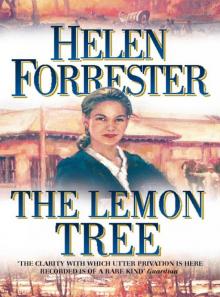 The Lemon Tree
The Lemon Tree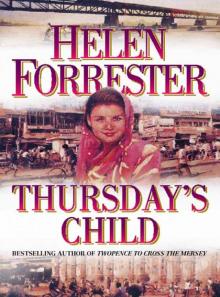 Thursday's Child
Thursday's Child Yes, Mama
Yes, Mama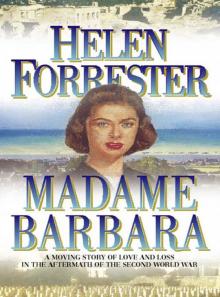 Madame Barbara
Madame Barbara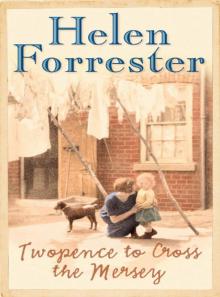 Twopence to Cross the Mersey
Twopence to Cross the Mersey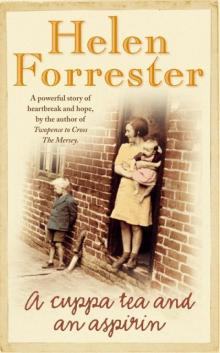 A Cuppa Tea and an Aspirin
A Cuppa Tea and an Aspirin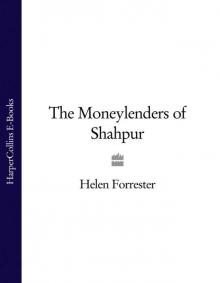 The Moneylenders of Shahpur
The Moneylenders of Shahpur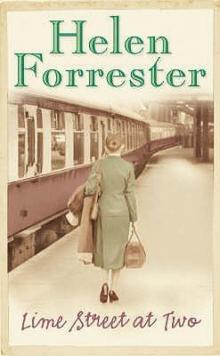 Lime Street at Two
Lime Street at Two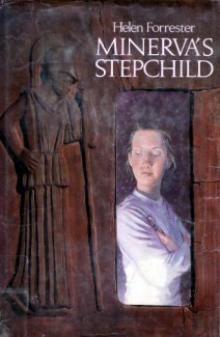 Minerva's Stepchild
Minerva's Stepchild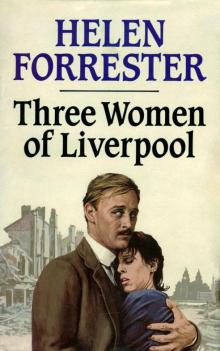 Three Women of Liverpool
Three Women of Liverpool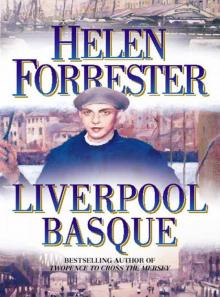 The Liverpool Basque
The Liverpool Basque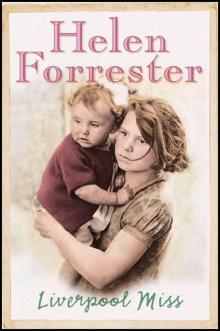 Liverpool Miss
Liverpool Miss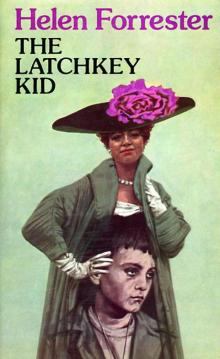 The Latchkey Kid
The Latchkey Kid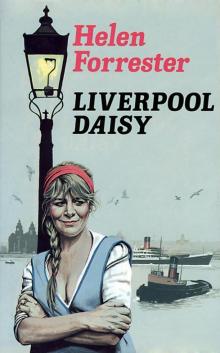 Liverpool Daisy
Liverpool Daisy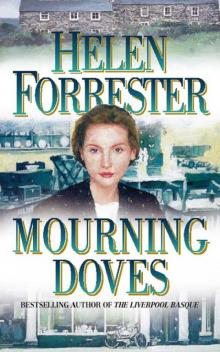 Mourning Doves
Mourning Doves